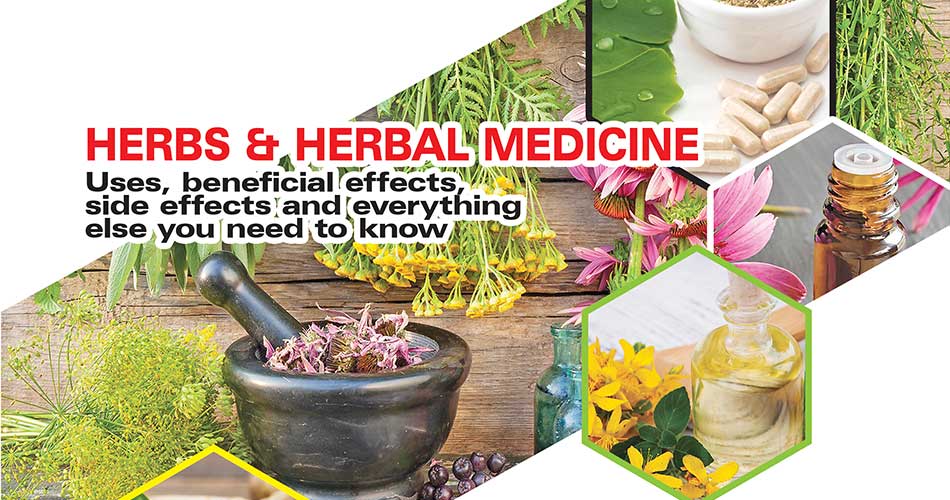Salt therapy – All you need to know
- 24 Feb - 01 Mar, 2024
For centuries, cultures around the world have relied on traditional herbal medicine to meet their healthcare needs. Despite medical and technological advancements of the modern era, the global demand for herbal remedies is on the rise. Some natural remedies may be more affordable and accessible than conventional medicines, and many people prefer using them because they align with their personal health ideologies.

Herbal medicine involves the use of natural and biologically based practices, interventions, and products to treat a variety of physical or emotional conditions. The World Health Organisation estimates that 80 per cent of the world’s population, or about four billion people, currently use herbal medicine for some of their health care.
Many herbal preparations may have benefits. Others may have no obvious or proven benefit, and some, in fact, can be harmful. For most of the over-the-counter herbs you can buy, there is probably little risk of having a bad reaction if you follow the directions.
Here are seven of the world’s most popular herbal medicines, including their main benefits, and medicinal uses.
• Echinacea – to stimulate the immune system and aid the body in fighting infections. Used to treat ailments such as boils, fever and herpes.
• Dong quai (dang gui) – used for gynaecological complaints. Some studies indicate that dong quai can lower blood pressure.
• Garlic – used to reduce the risk of heart disease by lowering levels of blood fats and cholesterol (a type of blood fat). The antibiotic and antiviral properties of garlic mean that it is also used to fight colds, sinusitis and other respiratory infections.
• Ginger – many studies have shown ginger to be useful in treating nausea, including motion sickness and morning sickness.
• Ginkgo biloba – commonly used to treat poor blood circulation and tinnitus (ringing in the ears).
• Ginseng – generally used to treat fatigue, for example during recovery from illness. Also used to reduce blood pressure and cholesterol levels, however overuse of ginseng has been associated with raised blood pressure.
• Hypericum – commonly known as St John’s wort. Studies have suggested that St John’s wort is just as effective as some pharmaceutical antidepressants in treating mild to moderate depression. It is also used for anxiety and insomnia. However, St John’s wort can interact with a number of prescription medications, and stop them from working properly.
Anything that can improve health or do the body good also has the potential to do harm. Just because something is 'natural' doesn't mean it's better for you. It doesn’t mean that it's always safe.
There are no regulations or standards for preparing or packaging of herbal medicines, so their dosages and strengths may not be consistent. Just because one brand of St. John's wort seems to have an effect for you does not mean the next bottle will have the same effect.
There can be problems and unwanted reactions when herbal medications and high dose vitamins are combined with prescription medicines – something that most people do. The majority of these people rarely bother to tell their health care providers that they use supplements. Always let your doctor and other health care providers know what herbs you are taking, especially if they are going to be prescribing a new drug for you.
Certain herbs can also complicate existing conditions or problems, such as inflammation, allergies, pregnancy, or nursing. Some herbs – St. John's wort for example – can make you more sensitive to the sun. In other words, with herbal preparations as well as for prescription medications, you need to be aware of possible adverse reactions. More importantly, some herbs on the market are found to be not recommended for human consumption. And as always, be safe and tell your prescribing physicians and other health care providers about all the herbal and vitamin supplements you are taking.
Because the herbal industry is growing rapidly, there may be many irresponsible manufacturers looking to make a quick buck. Check with a qualified herbal practitioner to find out quality ratings for a manufacturer before you buy a product.
Although, herbal medicines do cure some illnesses and diseases but you should always think before you leap. If you choose to use herbal supplements, do your homework. Be aware of the potential risks. If you have doubts about the safety or wisdom of using a particular herbal supplement, seek qualified advice.
COMMENTS